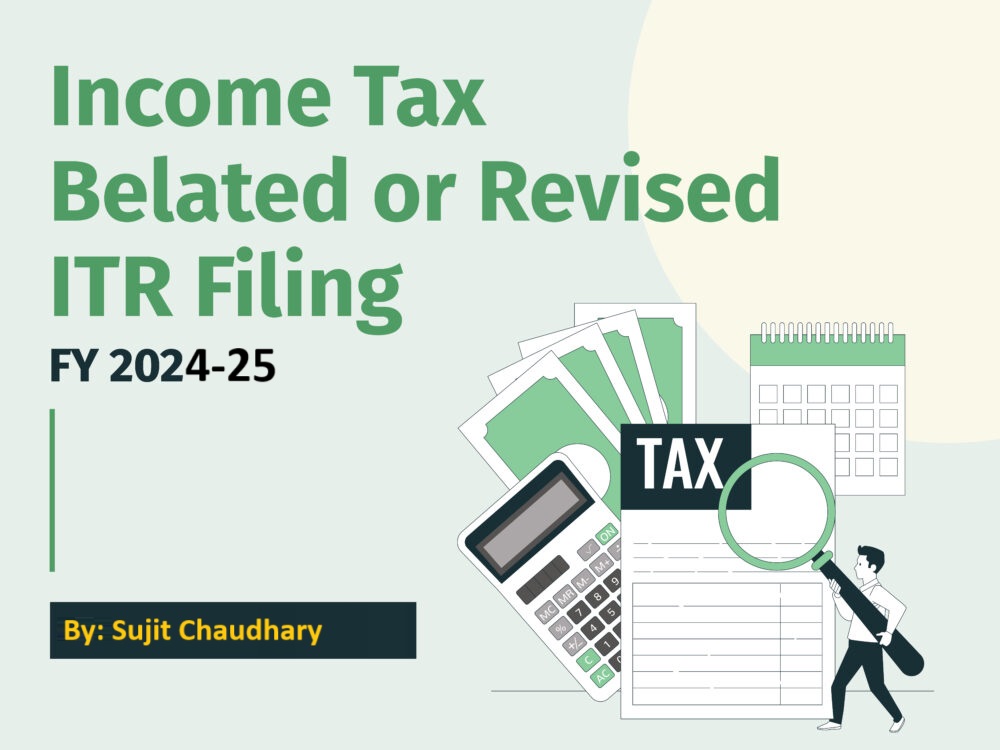Section 139 of the Income Tax Act, 1961, lays down the provisions regarding the filing of Income Tax Returns (ITR) in India. It specifies who is required to file returns, the types of returns, and the associated timelines. Compliance with this section ensures accurate tax reporting and helps avoid penalties. Below is a comprehensive guide to Section 139 and its key sub-sections.
What is Section 139?
Section 139 mandates the filing of income tax returns by individuals, businesses, and other entities. It serves as a framework for reporting income, deductions, and tax liabilities to the Income Tax Department.
Key Sub-Sections of Section 139
- Section 139(1): Mandatory Filing of Returns
This sub-section specifies the categories of taxpayers who are required to file an ITR:
Individuals:
Income exceeding the basic exemption limit (₹2,50,000 for individuals below 60, ₹3,00,000 for senior citizens, and ₹5,00,000 for very senior citizens).
Individuals who deposit more than ₹1 crore in a bank account, incur expenses of ₹2 lakh on foreign travel, or pay electricity bills exceeding ₹1 lakh.
Businesses and Firms:
Companies (regardless of income).
Firms with taxable income.
Others:
Charitable trusts, political parties, and institutions claiming exemptions under the Income Tax Act.
- Section 139(3): Filing of Loss Returns
Taxpayers with a business loss or capital loss must file a return within the due date to carry forward these losses to subsequent years.
Example:
A taxpayer incurs a short-term capital loss of ₹1 lakh in FY 2023-24. Filing a return under Section 139(3) allows this loss to be set off against future gains.
- Section 139(4): Belated Returns
If the due date for filing an ITR is missed, taxpayers can file a belated return under this sub-section.
Deadline: December 31 of the relevant assessment year.
Penalty:
₹1,000 if income is below ₹5 lakh.
₹5,000 if income exceeds ₹5 lakh.
- Section 139(5): Revised Returns
Taxpayers can file a revised return if they discover errors or omissions in their original or belated return.
Deadline: December 31 of the relevant assessment year.
Example:
If an individual omits an income source in the original return filed on July 31, 2024, they can correct this by filing a revised return under Section 139(5) by December 31, 2024.
- Section 139(8A): Updated Returns
Introduced recently, this provision allows taxpayers to file an updated return for omitted income within two years from the end of the relevant assessment year.
Conditions:
Applicable for both underreported and unreported incomes.
Requires payment of an additional tax of 25%-50%.
- Section 139(9): Defective Returns
A return is considered defective if it lacks required information, documents, or proper formats.
The Income Tax Department notifies the taxpayer to rectify the defects within a specified time.
Failure to comply may render the return invalid.
Filing Deadlines Under Section 139
Importance of Filing Returns Under Section 139
- Legal Compliance: Ensures adherence to tax laws and avoids penalties.
- Claiming Refunds: Filing enables taxpayers to claim refunds for excess tax paid.
- Carrying Forward Losses: Allows losses to be set off against future gains.
- Proof of Income: Serves as official documentation for loan applications and visa processing.
Penalties for Non-Compliance
Late Filing Fee: Imposed under Section 234F.
Interest on Tax Dues: Charged under Sections 234A, 234B, and 234C.
Prosecution: Severe cases of non-compliance can lead to prosecution under Section 276CC, with imprisonment ranging from 3 months to 7 years.
Example of Section 139 Compliance
Scenario:
A salaried individual earns ₹7,50,000 during FY 2023-24 and pays taxes via TDS.
Original Return: Filed by July 31, 2024.
Missed Deadline: The individual files a belated return on October 15, 2024, incurring a penalty of ₹5,000.
By filing under Section 139(4), the taxpayer avoids further legal complications.
Conclusion
Section 139 of the Income Tax Act ensures that all taxpayers meet their tax obligations in a structured and transparent manner. Whether filing original, belated, revised, or updated returns, understanding the nuances of this section is crucial for individuals and businesses. Timely compliance with Section 139 not only avoids penalties but also establishes a smooth tax filing experience. For personalized guidance, consulting a tax professional is highly recommended.


